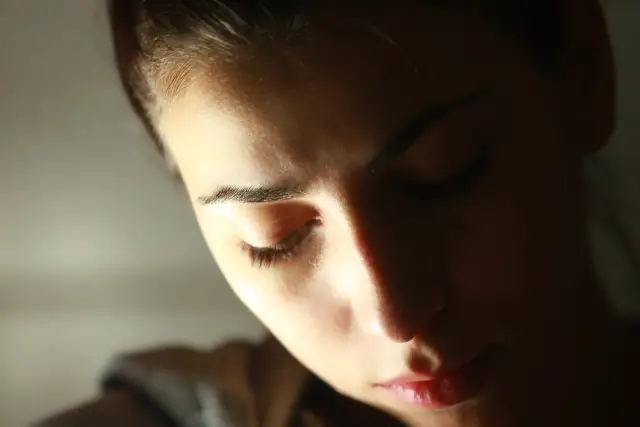During pregnancy, you feel like the hospital has become your second home. Most of the time a woman will become a half doctor after completing a pregnancy. Continually hearing doctor talk using medical terms and reading about pregnancy makes you a prodigy. It is a good sign and habit that you are keen on knowing more about different aspects of pregnancy. It is essential to learn about low blood pressure during pregnancy, depression during pregnancy and complications.
What is low blood pressure during pregnancy?
Apart from pregnant women for the rest of human population low blood pressure is systolic below 120 mm of Hg and diastolic below 80 mm of Hg.
The heart is a pump that never stops. If it stops you know what will happen.
Systolic blood pressure is the blood pressure in arteries when the heart pumps. Diastolic blood pressure is the BP when the heart relaxes or more appropriately refills.
The term “mm of Hg” means millimeters of mercury.
The non-digital blood pressure measuring device uses mercury levels to measure the blood pressure.
Nowadays you might see the digital pregnancy test more commonly in use. Even today some doctors continue to use the old blood pressure measuring device.
Quite interestingly low blood pressure during pregnancy is not diagnosed by these levels and is symptomatic.
It means that if a woman complains of the symptoms of low blood pressure, then doctors advise her all precautions.
The actual blood pressure may not be the criteria for considering low blood pressure during pregnancy.
If a pregnant woman says that she feels light headed and has swollen limbs, then the doctor may not abide by the standard measurements.

What causes low blood pressure during pregnancy?
Low blood pressure during pregnancy is due to many reasons:
1) Hormonal changes
During pregnancy, there are many hormones floating in your bloodstream. They can dilate your blood vessels causing low blood pressure during pregnancy.
Some hormones might cause symptoms like dizziness and fainting which are also considered as low blood pressure signs.
2) Blood loss
A pregnant woman may be having spotting during pregnancy. Though the loss is insignificant, for some women it can cause low blood pressure during pregnancy.
This is the case when the woman is a deficit of blood.
3) Fatigue
The body undergoes a lot of changes during pregnancy. All these processes require a lot of energy.
Due to this, it is probable that the woman can have low blood pressure during pregnancy. A rich, balanced diet is also essential during pregnancy.
4) Not having enough sodium
During pregnancy, there is a lot of dehydration. The body needs more and more of water. Along with water essential solutes also move out. It is important to replenish these solutes to restore a healthy blood pressure.
5) Increased fluid volume
While the essential blood components fall down, other fluids might increase locally. This causes low blood pressure due to increase in blood volume. This is common during later stages of pregnancy.
During the second trimester of pregnancy blood vessels expand maximally.
There is growth and a whole new world forming inside the mother. The blood circulation is working unstoppable, and this can lead to bouts of low blood pressure when exhausted.
A woman who is not replenishing her lost nutrients will suffer more.
There may be cases like suddenly getting up causes blacking out in front of pregnant woman’s eyes.
She may feel tingling sensations in her limbs. Numbing of hands is a sign of the second trimester and is due to low blood pressure during pregnancy.
Low blood pressure generally occurs after pregnancy reaches midterm and continues till the end of pregnancy. But by third trimester the blood pressure levels pick up.
Doctors give strict lists of precautions to such pregnant women.
Complications of low blood pressure during pregnancy
- Doctors cannot prescribe diuretics: Diuretics are drugs that promote urine passing out. The increase in blood volume exerts excess pressure on the heart, and yet it doesn’t meet up the demand. It causes a low blood pressure during pregnancy. Diuretics promote removal of fluids and thus reduce the blood volume. Diuretics affect not only pregnancy test but also the health of the unborn child. It is not safe to take Diuretics during pregnancy.
- Increased uptake of sodium is not healthy: Increasing the concentration of solutes like sodium or potassium is not safe during pregnancy. These are electrolytes known to raise the blood pressure. But during pregnancy low blood pressure treatments cannot use electrolytes because it can interfere with the osmosis through the placenta. A higher amount of solute in the blood can affect baby’s health might cause water to move across the placenta and increase the fluid inside the womb. This can be dangerous.
Other problems include blurring of vision. A woman having low blood pressure during pregnancy may have chest pain.
Dizziness is the most common symptom of low blood pressure during pregnancy.
Weakness during pregnancy is normal. But feeling lethargic all the time is a sign of low blood pressure.
Numbness is another symptom of low blood pressure during pregnancy.
Shortness of breath and fainting are signs that the pregnant woman needs medical attention.
Another complication of low blood pressure during pregnancy is that the woman bleeds more often.
A normal spotting during pregnancy may turn out to become heavy bleeding. Miscarriage risks also increase due to this condition.
Treatment for low blood pressure during pregnancy
Treating low blood pressure during pregnancy is more inclined towards precautionary measures.
Due to the complications, involved doctors focus more on keeping the woman relaxed.
If the condition of women with low blood pressure during pregnancy is severe, she needs admittance in the hospital.
For women who have a household where they don’t have to work, it is possible to stay at home.
Bed rest is compulsory for women dealing with prenatal low blood pressure. In some cases, the low blood pressure may continue after delivery for some days.
In that case, the reason will be primarily the heavy blood loss during parturition. Parturition is the act of delivering the neonate.
Gynecologists are more concerned with keeping the baby alive while the cardiologists will want to save the mother.
In most cases it is the family member who takes the responsibility decides who their priority is.
Low blood pressure during pregnancy can cause coma during baby delivery.
- A woman having low blood pressure during pregnancy must lie down and spend more time off feet.
- Getting up suddenly from sleeping or sitting posture is forbidden for low blood pressure pregnant women.
- While sleeping, she must lie down on her left side to allow the blood to flow well throughout the body.
- During any dental work or any surgical procedures, she must place a pillow under her left leg. Doctors might not even allow dental work while pregnant in such cases.
- She should avoid drinking too many fluids and consume more energetic foods.
- If there is any feeling of fainting, she should sit down to avoid any injuries from a fall.
Low blood pressure during pregnancy is common but not something that can go ignored. You must talk to your doctor about it.
Women who have a medical history of blood pressure disorders are more prone to this fluctuation of blood pressure during pregnancy.









